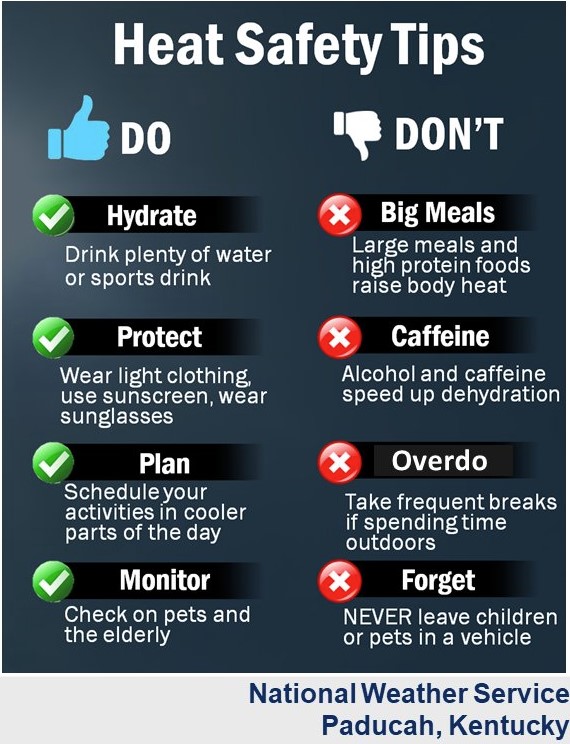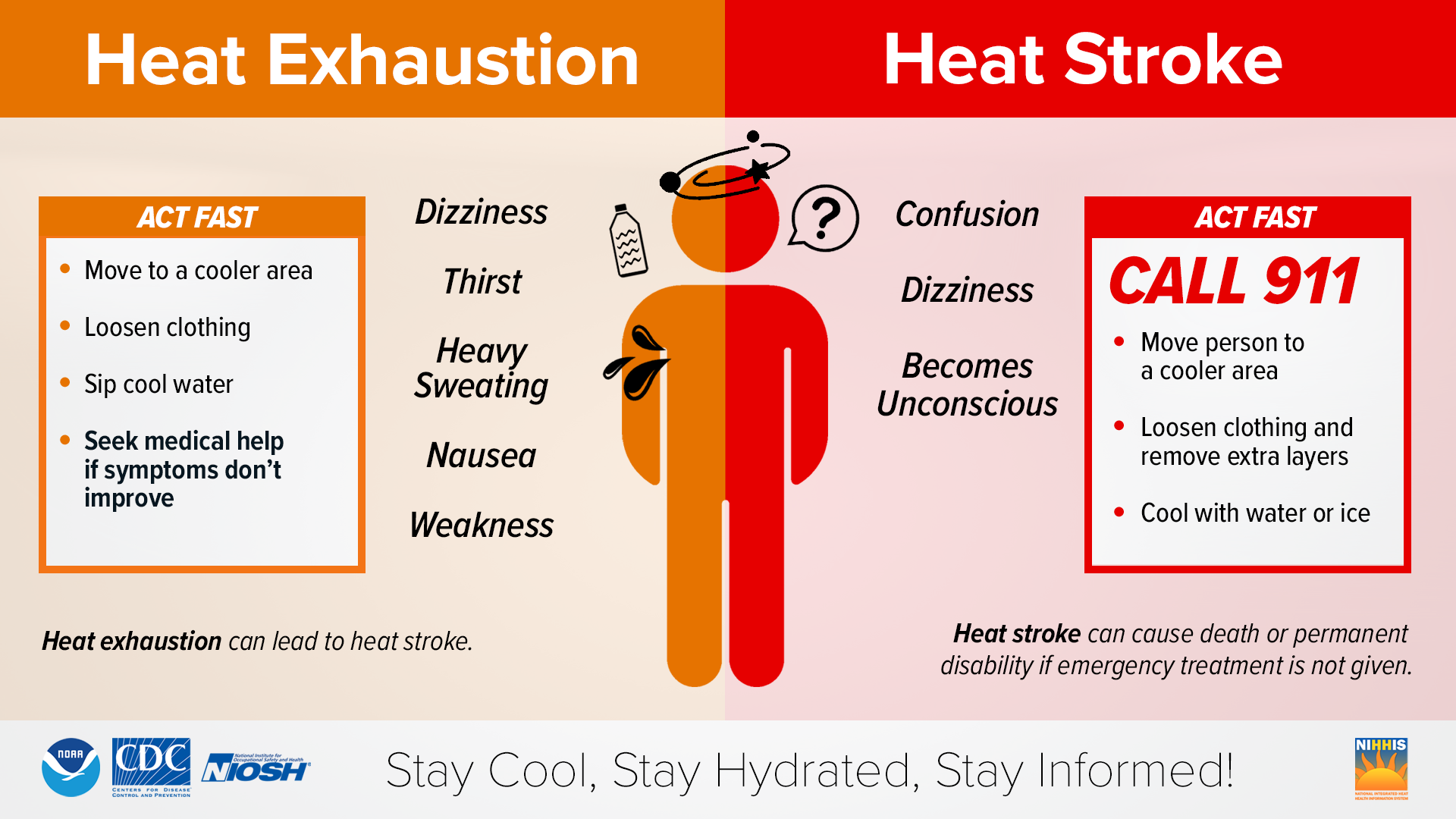Heat Safety Reminders
Jun 28, 2023

By: Michaela Chambers, Marketing Intern
Summertime is upon us, which means outdoor activities, longer days, and higher temperatures. Especially for those who work outside or have physically demanding jobs, this time of year can take a toll on your health. Within the agriculture industry, production farmers take the brunt of the sweltering heat. Whether they are checking fields, working on equipment, or caring for livestock, it is important to know all the warning signs of heat related illnesses in order to stop them in their tracks.
As farmers, we know how easy it is to say, “I won’t be out there long,” and then end up spending all day in the hot sun. This is why it is crucial to always have cool water, a sports drink with some electrolytes, and a hat or other protective clothing with you at all times. Also, always make sure you carry a cell phone and tell someone where you’re going. That way, you can call for help if you begin to show symptoms of a heat related illness or someone can come to look for you if they don’t hear from you in a couple hours.

How do you know if you are falling victim to a heat related illness? Look for these signs:
- Dizziness
- Fever
- Fatigue
- Nausea and vomiting
- Excessive sweating accompanied by cold, clammy skin
- Weak, fast heartbeat
If you or someone you are with begin to show any of these symptoms after being in the heat, they may be suffering from Heat Exhaustion. From the time the first symptom begins, it is crucial to take a break, cool down, slowly drink cool water or a sports drink with electrolytes.
There are multiple types of heat related illnesses, such as heat exhaustion and heat stroke. If not treated properly and urgently, heat exhaustion can lead to heat stroke, which can be fatal. Signs of heat stroke include:
- Body temperature above 106 degrees F
- Lack of sweating; hot, dry skin
- Altered mental state
If symptoms of any heat related illness persist for longer than an hour or begin to get worse, seek medical attention or call 911.

Just like with any illness, prevention is key. Some ways to prevent heat related illnesses include:
- Proper training
- Adjusting workloads with the temperature in mind
- Drink plenty of water, even if you aren’t thirsty. A good rule of thumb is to take a few sips every 30 minutes
- Take breaks in the shade or cooler areas
*This article is not intended to be medical advice. If you or someone you know begins to feel sick, seek medical attention or call 911.
Resources:
https://my.clevelandclinic.org/health/diseases/21480-heat-exhaustion
https://www.epa.gov/pesticide-worker-safety/preventing-heat-stress-agriculture#:~:text=Schedule%20heavy%20work%20and%20tasks,shade%20or%20cooling%20during%20breaks.
https://eri.iu.edu/erit/implications/rural-agriculture.html
https://www.mayoclinic.org/diseases-conditions/heat-stroke/symptoms-causes/syc-20353581
https://www.weather.gov/safety/heat-illness